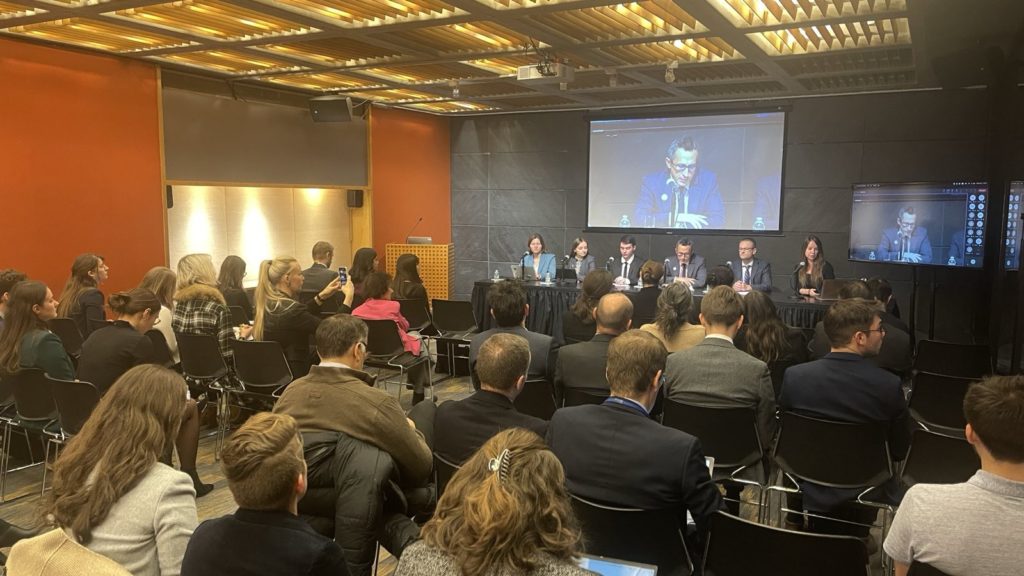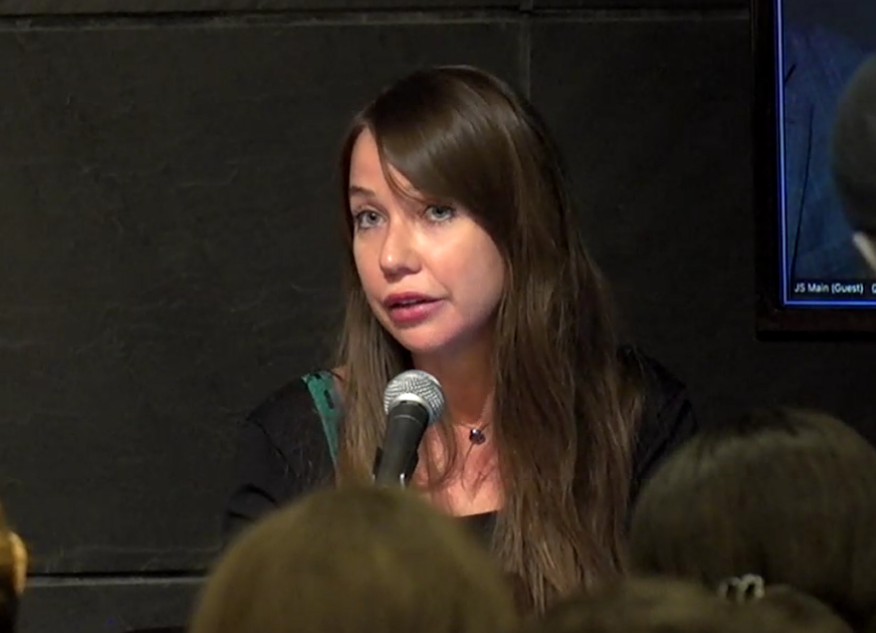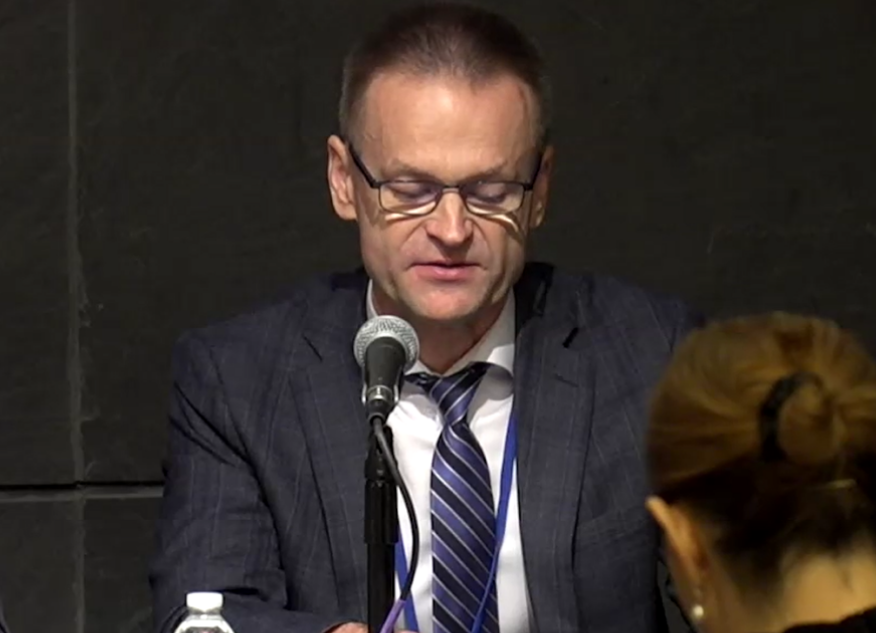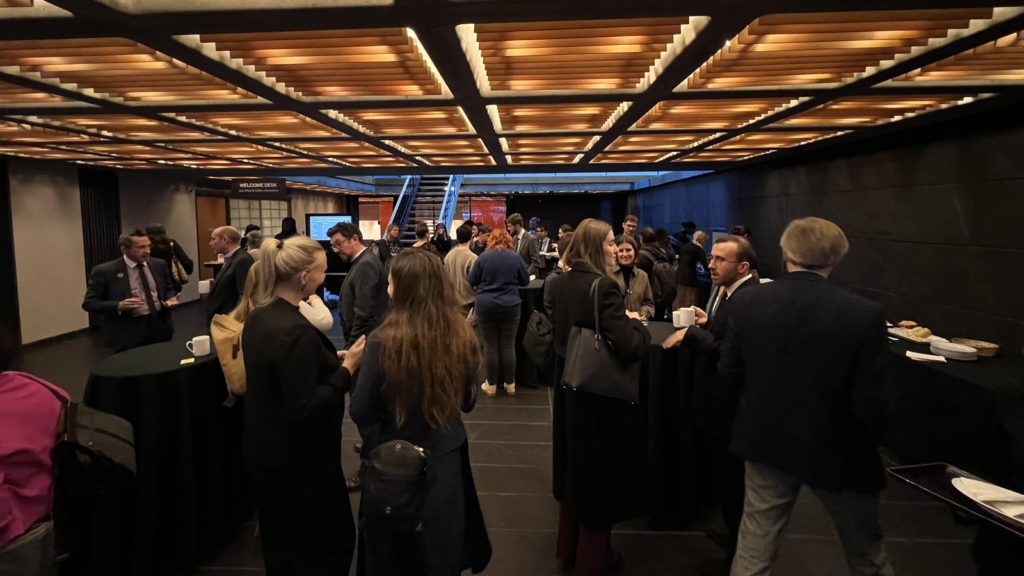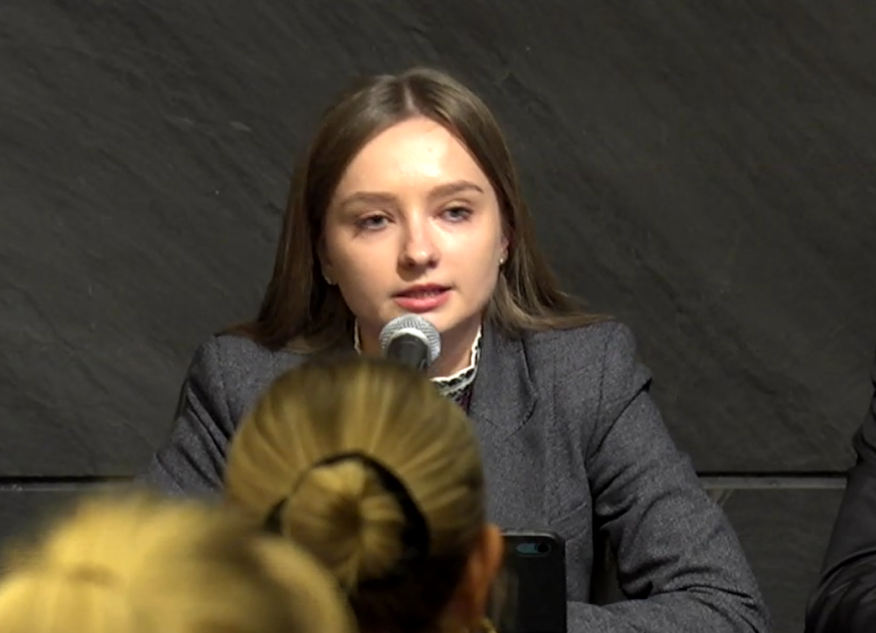On December 12, 2023, EPL, in collaboration with partners such as the Open Society Foundations, the International Renaissance Foundation, the Office of the Prosecutor General, and the Institute for Environmental Security, organized an additional event entitled «War-driven Environmental Damage in Ukraine: Perspectives on the Application of the Rome Statute and the Work of the International Criminal Court». This took place within the framework of the Twenty-Second Assembly of States Parties to the Rome Statute of the International Criminal Court. The attention for and recognition of the importance of the discussed issues were evident through the support of countries such as Estonia, Ukraine, and Romania for the conduct of this event.
Certainly, the extent of environmental damage inflicted by war in Ukraine must be assessed, and those responsible should be held accountable for crimes defined in the Rome Statute of the International Criminal Court (ICC). However, the threshold for environmental harm during war, as per the text of the Rome Statute, is high. Therefore, proving the fact of committing such a crime requires significant efforts and resources in terms of investigation from both the International Criminal Court and national law enforcement agencies. Despite the big scope of systemic environmental damage caused during wars and armed conflicts, the International Criminal Court has not yet established a precedent for holding individuals accountable for such harm.
Ukraine has the potential to become an example of a state successfully applying provisions of international law for environmental protection. It can set a precedent in international judicial institutions for holding individuals accountable for environmental damage during wartime, particularly within the mechanisms of the International Criminal Court.
The inclusion of the crime of ecocide in the Rome Statute of the International Criminal Court (ICC) is particularly relevant to the global environmental situation, especially in light of the destructive impacts on nature during the full-scale Russian invasion of Ukraine. Developing legal precedents for ecocide at both national and international levels now can help prevent similar-scale damage in the future. Despite the challenges of applying the “Ecocide” article in the current Criminal Code of Ukraine, Ukraine and the international community must create conditions for thorough, proper, and independent prosecution of such crimes at both national and international levels.
During this event, Article 8(2)(b)(iv) of the Rome Statute of the ICC was examined in more detail, considering the impact of war on the environment in Ukraine as an example of how it should be applied. Ukraine is beginning to establish an innovative legal precedent in investigating the mass destruction of the environment during wartime.
Opening the side event, the Permanent Representative of the Republic of Estonia to the UN, Н.Е. Rein Tammsaar, emphasized the extraterritorial impacts on the environment during armed conflicts and the urgency of establishing an effective international mechanism for holding individuals accountable for environmental damage, both in peacetime and during wartime. The Permanent Representative of Estonia to the UN underscored Estonia’s support for Ukraine and expressed openness to cooperation and dialogue, which is critically important for Ukraine at this time.
Volodymyr Leschenko, the representative of the Permanent Mission of Ukraine to the UN, highlighted the importance for Ukraine of creating an effective mechanism to hold individuals accountable for causing environmental damage during war. He stressed the significance of international cooperation and consolidation of efforts in this direction. The position of Ukrainian representatives at the UN, emphasizing the environment and its protection as a key priority for the state, is highly valued and crucial.
The first speaker at this additional event was Katerуna Polyanska, an ecologist from EPL, a member of our team. She presented on the topic “The Impact of Military Actions on the Environment of Ukraine” and elaborated on EPL’s research, which focused on studying the issue of soil chemical contamination due to shelling. The findings revealed exceeding permissible concentrations of hazardous elements in samples by 12, 19, and 48 times. Kateryna also discussed the risks of contamination from burned military equipment and the debris of destruction. She highlighted EPL’s efforts in collaborating with conservation areas and participating in joint scientific expeditions to study the consequences of the catastrophe at the Kakhovska HPP. In conclusion, Katerуna Polyanska emphasized the importance of cooperation, knowledge exchange, and collaborative problem-solving to restore destroyed and polluted ecosystems for preservation of the environment, life, and health of Ukrainian citizens.
EPL lawyer Solomiіa Baran spoke about ecocide as a crime under Ukrainian criminal law and the possibility of applying the “Ecocide” article in the current version of the Ukrainian Criminal Code during a state of war. She focused on positive factors and achievements, challenges, lessons learned, and expectations regarding holding individuals accountable for the crime of ecocide in light of the Russian invasion of Ukraine. Solomiіa underscored the necessity of utilizing all available legal mechanisms, including national ones, to achieve justice. She also mentioned the urgent need for international support for Ukraine in conducting investigations into ecocide cases. Despite all challenges, Ukrainian environment deserves justice based on the rule of law.
Maxym Popov, an advisor to the Office of the Prosecutor General of Ukraine, discussed the challenges faced by prosecutorial authorities in conducting investigations into environmental crimes. He shared the experience in overcoming such challenges and outlined the directions of work of the Office of the Prosecutor General of Ukraine. His presentation shed light on the current state of such cases and the difficulties associated with conducting investigations in the conditions of war. The participation of representatives from the Office of the Prosecutor General in such events demonstrates openness to dialogue, the search for common solutions, and the implementation of genuinely effective measures to protect the environment, which is particularly critical in times of war.
Another segment of the event was dedicated to illustrating mechanisms for environmental protection in international criminal law and Professor Steven Freeland from Western Sydney University shared his insights into the key features of the legal framework and the text of Article 8(2)(b)(iv) of the Rome Statute of the International Criminal Court (ICC). Professor Freeland discussed the effectiveness of investigations under Article 8(2)(b)(iv) of the Rome Statute of the ICC as a whole and in the context of the Russian invasion of Ukraine. He addressed the question of whether the damage thresholds defined by this article for the environment are too high for the International Criminal Court.
Volodymyr Hryshko (Truth Hounds, Ukraine) briefed participants on the legal “puzzles” and challenges related to environmental crimes under the Rome Statute of the ICC. He drew attention to the substantive content of key terms relevant to Ukraine, such as attack and aggression. Volodymyr Hryshko presented the research findings of Truth Hounds regarding some consequences of the catastrophic explosion at the Kakhovska HPP, including losses of drinking water and the threat of radiation exposure. His analysis addressed the possibility and prospects of establishing a precedent for holding individuals accountable for environmental damage during armed conflicts, a genuinely relevant and discussed issue.
The final speaker of the event was Shirleen Chin, a representative from the Institute for Environmental Security in the Netherlands. She discussed ecocide as an international crime and the prospects of applying such a norm in holding perpetrators accountable for damage inflicted on the Ukrainian environment during wartime. Her insights into the potential use of customary international law were particularly valuable. Customary international law is one of the tools that can and must be applied by Ukraine and the international community in environmental cases. Shirleen Chin assessed the prospects for Ukraine in terms of the International Criminal Court’s consideration of crimes causing environmental damage in Ukraine, considering that Ukraine has not ratified the Rome Statute of the ICC.
The formal part of the event concluded with the formulation of conclusions and summaries based on the discussion. Moreover, the informal part of the event played a crucial role, allowing speakers and participants to engage in discussions on key issues related to investigations and prosecutions for environmental damage during armed conflicts.
As a result of the event, a statement will be prepared and forwarded directly to the Assembly of States Parties to the Rome Statute of the ICC.
The key to achieving justice and bringing to account those responsible for the environmental damage inflicted on Ukraine during the war lies in the unity of efforts. Collaboration in all possible forms, including states and international partners, civil society and government authorities, scientists, and environmental practitioners, is crucial. We sincerely hope that the synergy of ideas that took place during the additional event «War-driven Environmental Damage in Ukraine: Perspectives on the Application of the Rome Statute and the Work of the International Criminal Court» will serve as a catalyst for adopting nature-oriented decisions. These decisions will protect the environment of Ukraine and the planet as a whole, ensuring the effectiveness of investigations and prosecutions at all levels. Thus, justice will be served in the name of the environment and the rule of law.
Our team expresses deep gratitude to all co-organizing partners, the Permanent Missions of Ukraine, Estonia, and Romania to the UN, for productive collaboration, understanding, and openness to dialogue. Thanks to this, over 120 individuals, both in person and online, were able to hear the call to ensure justice for Ukraine and its environment during such a challenging time for our country.

